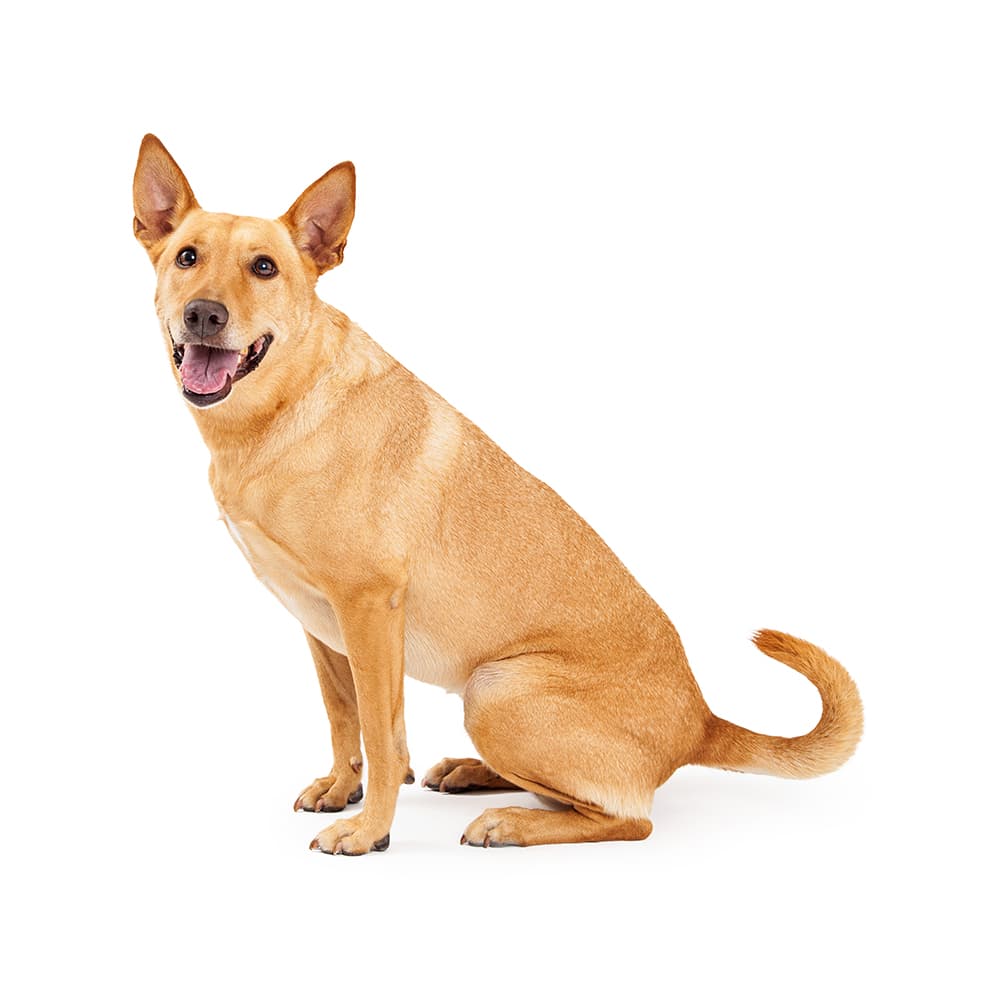Discover your dog's connection to this breed and 200+ others


Discover your dog's connection to this breed and 200+ others



The Carolina Dog, also known as the American Dingo, is a medium-sized sighthound breed that is native to North America. These dogs have been around for thousands of years and have a fascinating history. Archeologists have found documentation of ceremonial burials of these dogs with primitive Southwest Indian artifacts in southeastern forested woodlands of North America. It is believed they descended from Asian pariah dogs that were brought to North America across the Bering land bridge around 9,000 years ago. For a long time, Carolina Dogs lived in the wild, mainly in the southeastern United States. They were identified as a breed in the 1970s when a biologist, Dr. I. Lehr Brisbin Jr., noticed these dogs along a river site in South Carolina. He found them to be a unique and primitive breed, different from other North American dog breeds.
As a member of the Sighthound group, the Carolina Dog is known to be more sensitive to barbiturate anesthetic. Thiopental, or any other thiobarbiturate, should not be used on these dogs. Some studies have also shown that Carolina Dogs are sensitive to ivermectin, so this should be considered before antiparasitics are prescribed.
Carolina Dogs are known for their adaptability and intelligence. They are generally reserved, and may be somewhat aloof toward strangers, but are typically loyal and affectionate with their family members. These dogs have a very strong pack mentality, so they generally get along well with other dogs, especially if socialized from a young age.
These dogs have a high prey drive due to their history as wild dogs, so they may not be suitable for homes with small pets. They are also known for their agility and speed. They require a good amount of exercise and mental stimulation to keep them happy and healthy. As with all breeds, individual behavior can vary, and a dog's upbringing and socialization can have a significant impact on their behavior as adults.
A canine genetic lineage is a group of individuals or entire breeds that descended from common ancestors predating modern breed formation. Often these lineages are associated with a ‘type’ of dog with a unique historical working role and associated behaviors (e.g., herding, scent hunting, etc.).
Spitz and Sled Dogs originate in the Arctic and subarctic regions which caused them the develop adaptations to cold climates. Some of these adaptations give rise to characteristics of the lineage, most notably a dense double coat that helps with insulation. The lineage of these dogs can be followed back to ancient breeds developed by Indigenous people. These ancient breeds were used as an aid for transportation, herding, guarding, and hunting. These jobs have created dogs that are independent, intelligent and have strong work ethics as well as a sturdy body that helps them to pull sleds or go on long journeys over rough terrain.
Example breeds with ancestry from this lineage include Akita, Chow Chow, and Siberian Husky.
The Carolina Dog is also referred to as the American Dingo on account of its close resemblance to the Dingo of Australia.
These dogs can still be found living wild near the Georgia-South Carolina border in the U.S.
The Carolina Dog breed was recognized by the United Kennel Club (UKC) in 1995, and is a member of the American Kennel Club's Foundation Stock Service.
https://www.ukcdogs.com/carolina-dog
https://www.akc.org/dog-breeds/carolina-dog/
Recommended by top vets with decades of experience
21 breeds
64 genetic health markers
50 genetic trait markers
